Another question to ask might be, ‘what are the similarities?’ Lab grown diamonds are of the same chemical composition and physical composition and same durability as natural diamonds produced by mother nature in the earth. There are important variable factors between lab created diamonds and natural mined diamonds. Though, the most common misconception is that lab grown diamonds are “fake diamonds” or a diamond simulant that is not a real diamond, but that is just not the case. While a diamond simulant such as a cubic zirconia or moissanite gemstone will only be visually similar with similar optical properties— being chemically different. Needless to mention, these only visually similar stones may maintain a lower value and will prove to be less durable overtime.
Before you make a lifetime purchase for that unique diamond engagement ring, you should consider all the comparisons between a natural diamond mined from the earth and a laboratory grown diamond ring.
Where the Diamonds Grow Make all the Difference
Really. In simple terms the place that a diamond grows creates the biggest difference between a natural diamond and a created lab diamond.
Mined diamonds take form over a long period of time. In fact, for a natural diamond to take formation may range anywhere from 1 billion to 3.3 billion years. This lengthy process takes place under extreme conditions inside of the earth at about 2,200 degrees Fahrenheit combined with immense amounts of pressure. Over time, volcanic movements and earthquakes within the earth’s crust disrupt the location of these natural grown diamonds bringing them closer to the surface embedded in large chunks of rocks ready to be discovered. Understanding this extensive process helps us to convey the rarity of a genuine mined diamond. The journey for a single diamond ring continues from the rough diamonds that are then exhumed from the earth then to the intricate cutting process until finally being hand selected and set into fine diamond rings and diamond jewelry.
Another varying factor to note is that these extreme conditions cannot be controlled and are at the mercy of mother nature. Therefore, producing a wide range of variable diamond colors, diamond clarity and differing carat weights. These variations can be caused by the presence of differing trace minerals and other atmospheric conditions that influence the surroundings as the diamond is taking shape.
The saying ‘A diamond is forever’ should now carry a deeper understanding of what this sweet simple phrase means. When you select a natural diamond, you are wearing a stone that could be over 3 billion years old. This truly is an astounding and romantic consideration.
So, what is a Lab-Grown Diamond?
With advanced technological processes, diamonds can now be created in a laboratory. A created diamond is grown in highly-controlled laboratory conditions that replicate the earth’s environment – high pressure and high temperature, just rather above ground. These man-made diamonds have the same chemical makeup, crystal structure, optical and physical properties of earth’s natural counterparts. Being of the same makeup, a lab diamond will exhibit the same strength, durability, brilliance and fire. There are two ways to reproduce this above ground process in the lab with either with high-pressure, high-temperature (HPHT) or chemical vapor deposition (CVD). Either way these above ground diamonds are created, they will perform the same as a mined diamond.
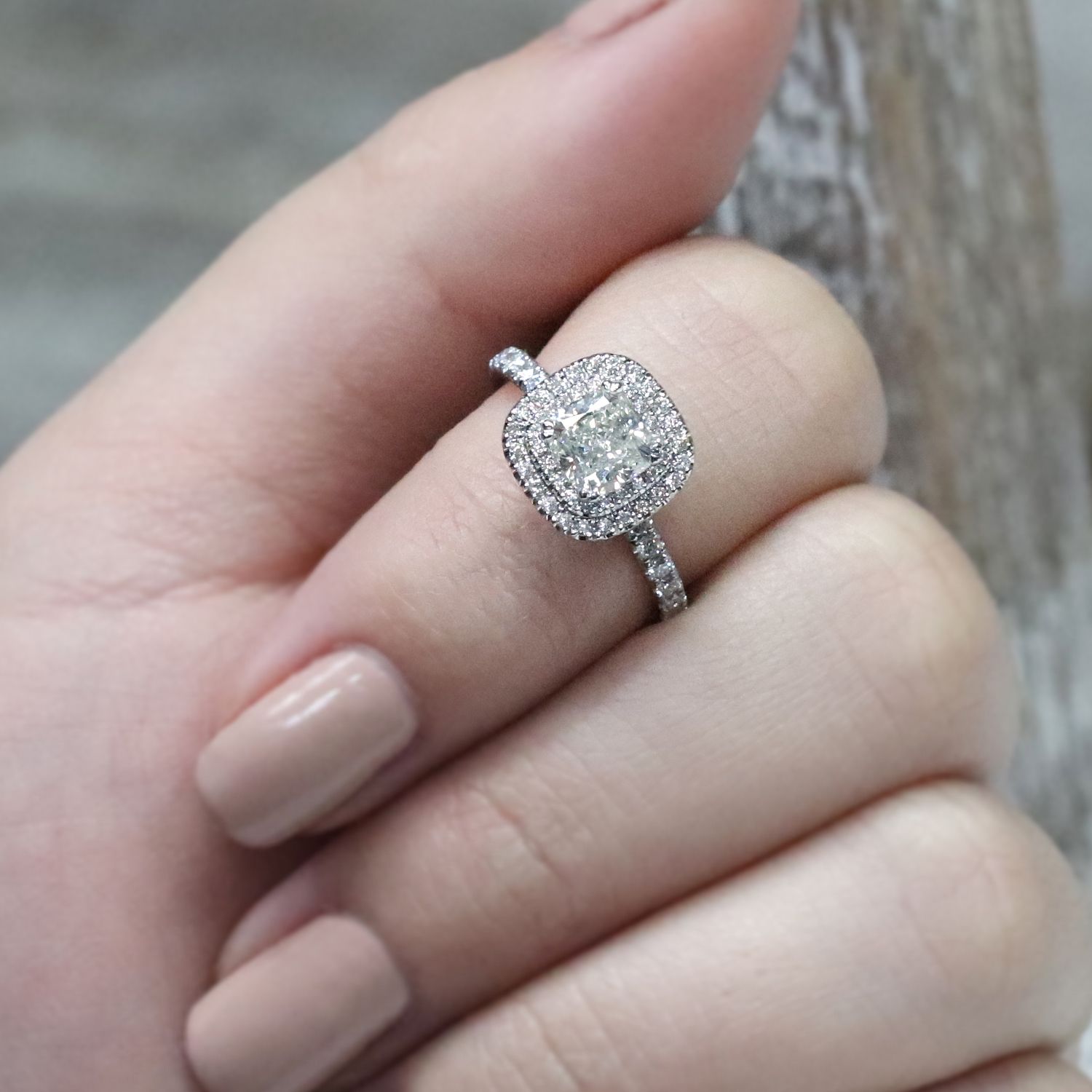
A Distinguishing Factor
The time it takes for a lab created diamond is billions of years faster than nature. The lab process of ‘growing’ these diamonds is fascinating as the time is sped up in comparison to billions of years to a mere 6 to 10 weeks. The laboratory growing period does slightly vary depending on the carat size of the diamond. Starting with a single diamond seed, larger lab-grown diamonds will take longer to form. For a natural diamond to be mined today, it would have made its way to the earth’s surface after forming in nature over a few billion years ago. This may also be an important varying price factor. After all, we could consider earth’s natural mined diamond as one of earth’s most pure antiques. Making the mined diamond even more romantic as the center focus of a natural solitaire diamond ring.
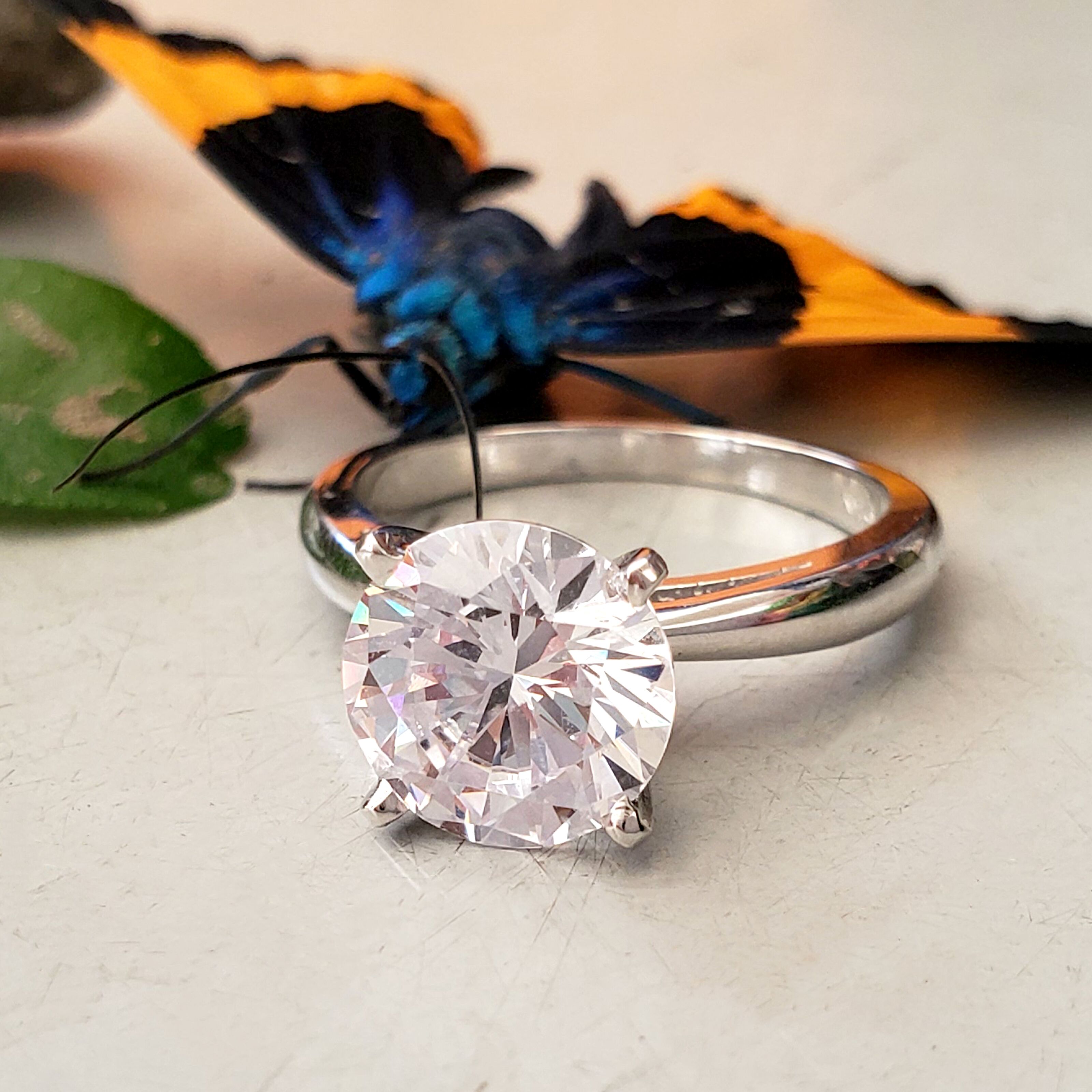
The carat weight produced by lab-created diamonds is another interesting and notable difference. The carat weight ranges of lab-grown diamonds currently max out at carat weights around 20 carats vs. large rough diamonds being discovered from the earth upwards of 400 carats total weight. There is no doubt that mother nature’s extreme pressure produces a larger natural diamond that can be created in the laboratory. The laboratory produced diamond selection creates an ideal scenario for the most popular carat weight engagement rings. Could you imagine wearing a 20-carat ring? Maybe, yes. But your hand may experience a little fatigue from the sheer weight of a stone that size. The lab-grown 1 carat diamond ring in a round brilliant cut just happens to be the top selection for its versatile wear and classic style.
Even though created lab diamonds are produced in controlled environments, they will maintain unique varying quality factors. This is because conditions can be controlled but not completely dictated. This keeping higher quality diamonds more rare and every bit as magical.
Do Lab Grown Diamonds Offer More Attractive Prices?
Lab created diamond engagement rings sell for lower prices, about 30% less vs natural diamond rings of the same comparable carat weight, clarity and diamond color. Considering the differences noted with mined and laboratory grown diamonds, this may not be a surprising conclusion.
Mother nature produces an array of diamonds in varying colors, clarity and qualities. All these variable factors affect the diamonds price. This is also a fact with lab-grown diamonds. These product details along with other options like metal type and carat diamond weight, will determine the overall price of your diamond ring. Opting for the lab created diamond ring may allow you the same budget but with a stunning ring in a larger carat weight or the same carat weight diamond ring, but with a higher diamond quality than you originally hand in mind. This also opens the door to unique diamond rings where previously you may have thought a ring may have fallen just out of your price range but is now suddenly more affordable by selecting the same diamond ring but with a stunning lab-created diamond.
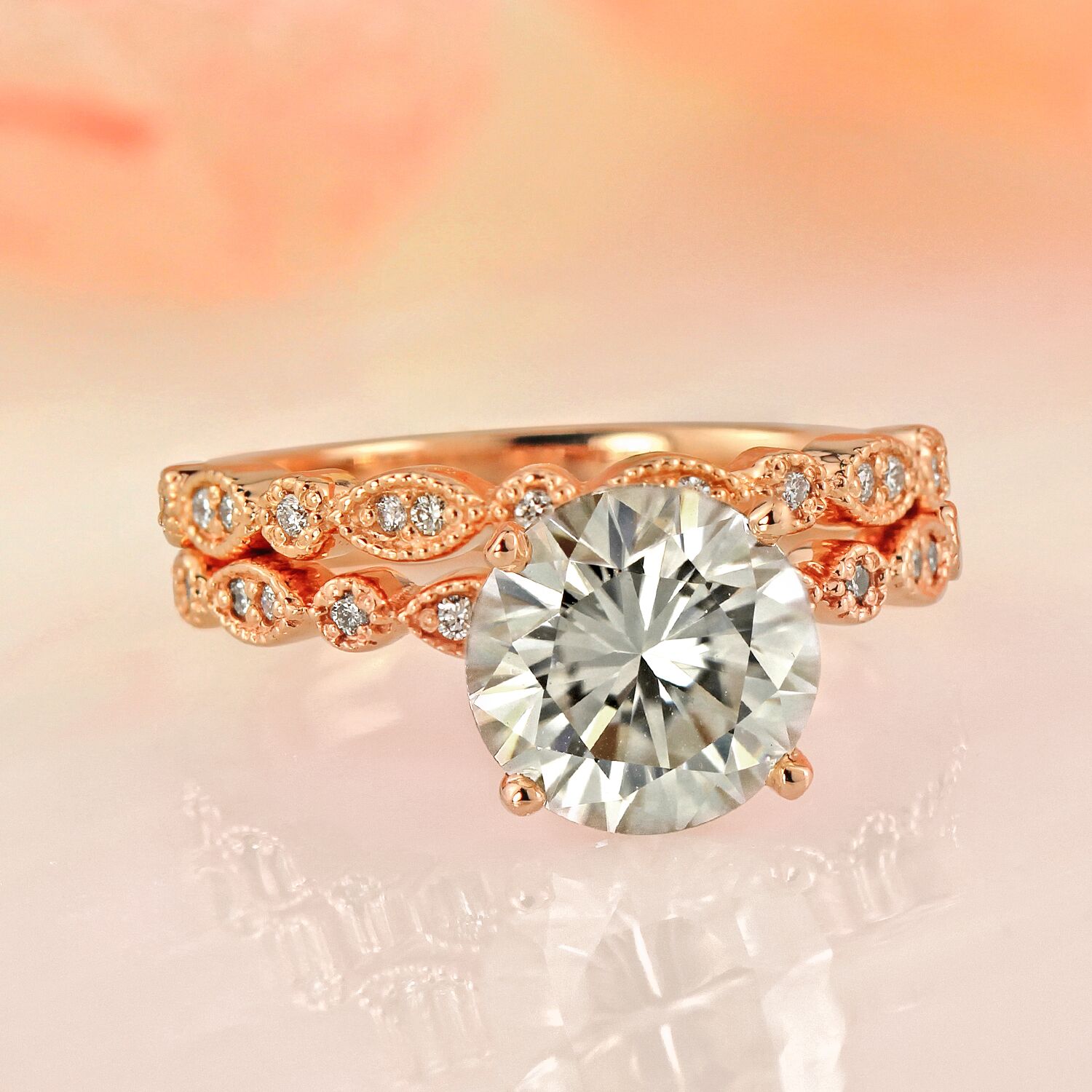
Why Should I buy a Lab Grown Diamond Engagement Ring?
Well if you are considering a lab created ring why not consider other created stones? Such as a cubic zirconia or moissanite gemstone as these stones are optically alike These visually similar stones seem to have the physical appearance factors similar to a diamond, but these diamond simulants simply just do that, they simulate a diamond. The cubic zirconia and moissanite while are also lab-created gems that are designed to replicate diamonds, they physically and chemically just don’t fully compare to the lab diamond. Cubic Zirconia (also known as CZ) stones are always created with a seemingly flawless appearance and high sparkle. Though, the hardness of a cz stone is not similar to the strength of lab-created diamonds and overtime will become porous. Taking on other elements and chemicals they are introduced to (like lotions and perfumes). What you are left with may be a stone appearing cloudy and unclear.
These two mentioned diamond simulants are not made of the same physical structure, carbon crystals like diamonds. Which means simulated rings sell at prices less than diamonds (laboratory or mined). Though, these diamond simulants may serve a great purpose when it comes to fashion jewelry or a piece of jewelry that is only desired for a certain purpose or time period. To the untrained eye, these stones at first will be hard to identify the differences. Though, a person educated in gemological training or trained in fine jewelry will be able tell the differences with just with the naked eye.
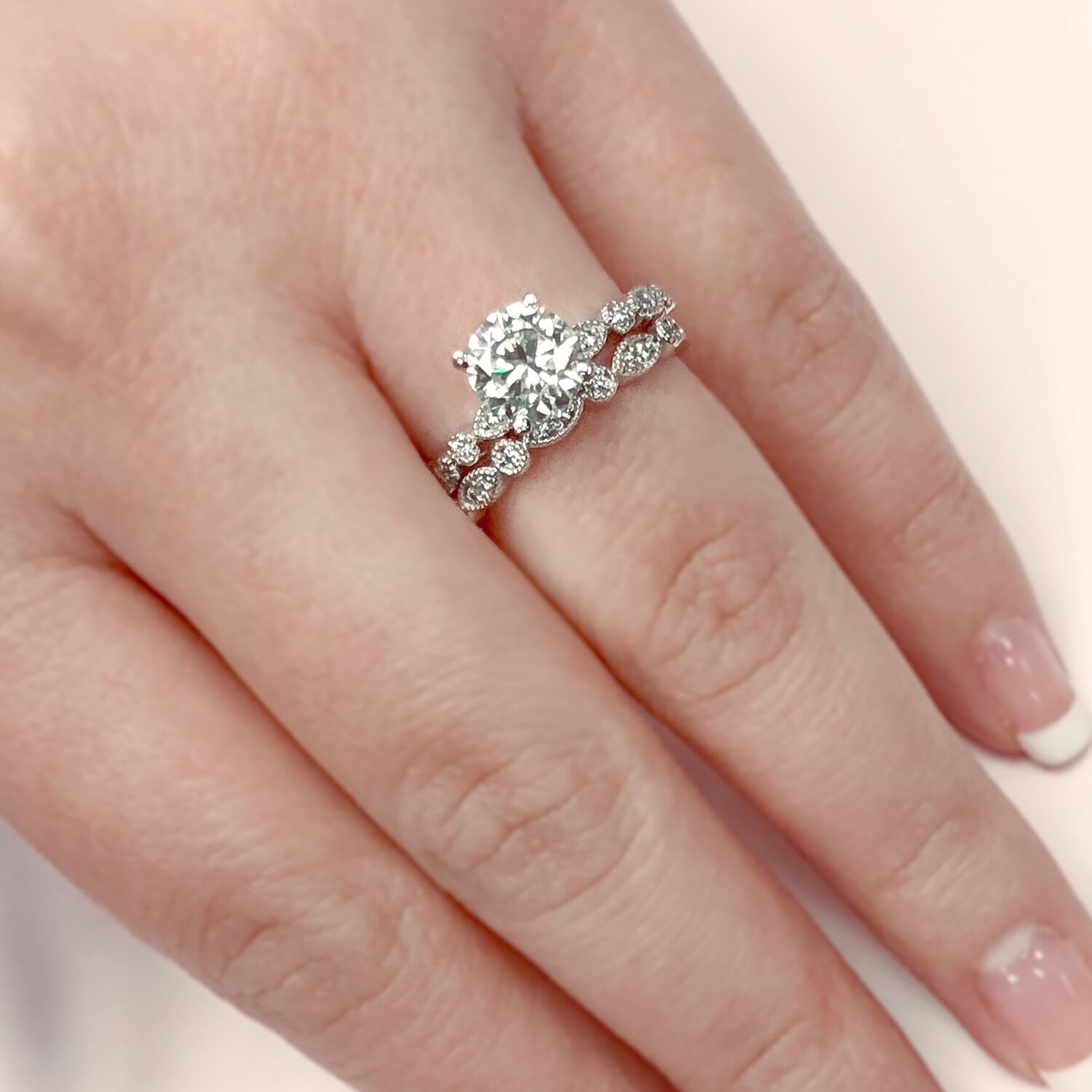
Final Review – Select the Diamond That Appeals to You
By now you have determined whether a Lab-grown diamond ring or a natural mined diamond ring is ideal for you. Both are of the same chemical and optical properties and both type of diamonds will equally perform. Most importantly, either selection will last for generations to come. The beauty of both is difficult to compare nor deny. So, the most notable difference lies with the origins of each diamond. Selecting your most important factors will help you choose whichever type of diamond ring or gemstone ring accented with diamonds is ideal for you. But there is no doubt every diamond will maintain unique with unsurpassed sparkle and be sure to put a twinkle in the eye of the receiver. But, if you remain a hopeless romantic that adores the unique and enduring process of the traditional earth formed diamonds, a mined diamond may continue to be your ideal diamond ring and wedding band selection.
Don’t Forget the Certification
No matter where you make your diamond purchase, ensure your lab-grown diamond engagement ring or lab grown diamond necklace includes a reputable diamond certification or grading report. Each lab grown diamond certificate will have different measurement parameters than that of traditional diamond certifications. There are also many different certificates available in the US, some of the most well-known and respected certificates are GIA (Gemological Institute of America), EGL USA, and IGI (International Gemological Institute). Just like all our of natural diamond rings include a certificate, you can expect all our lab grown diamond rings to be IGI Certified and also include a free appraisal report with every purchase from Diamondwish.com.
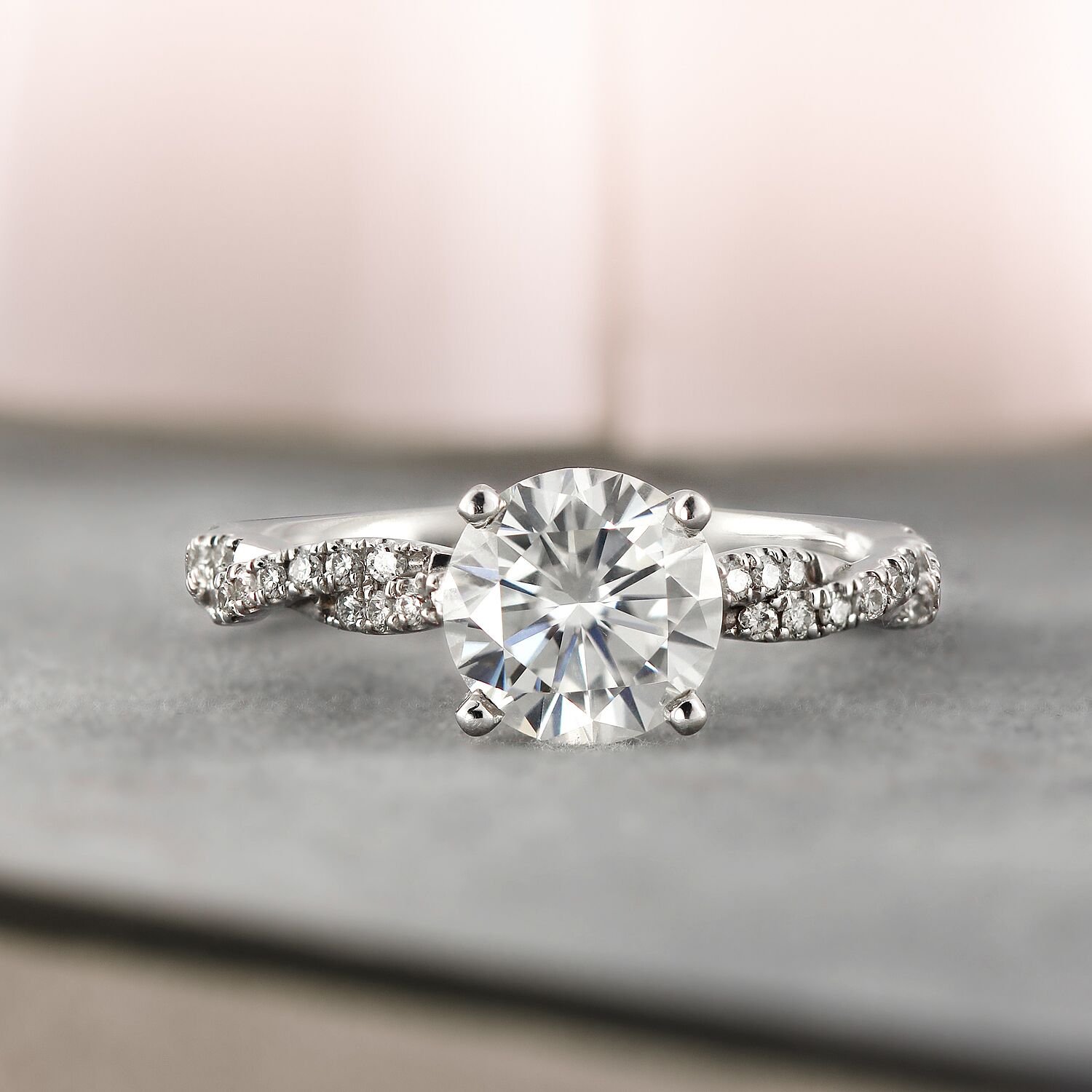
Comments are closed.